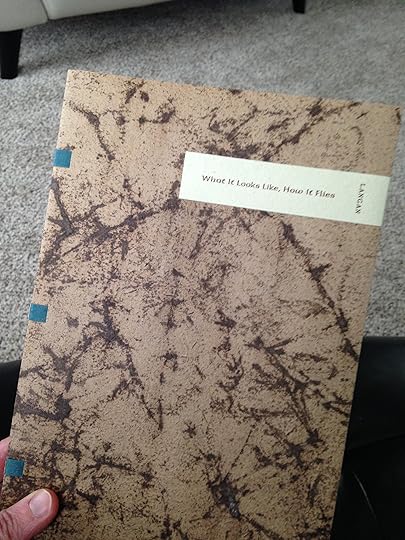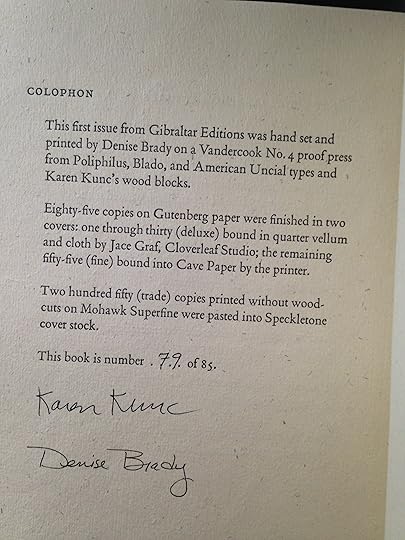Liz Kay's Blog, page 3
August 6, 2015
So I have a New Website
Or, more accurately, the website I've had for years has a new look.
The thing about publishing a novel is that everyone involved is so goddamn professional that I feel like I have to step it up. Luckily, there are professionals involved and they're willing to tell me how to go about doing that.
Last week I had a long conversation with a woman at Writers House who more than walked me through a lot of online and social media things. Also, even her criticisms were gracious and encouraging and did not make me feel like an ass. It would be super easy to make me feel like an ass these days. In large part, this is because every conversation involves me admitting that I don't even know what questions to ask aside from, of course, the clarifying questions that follow the pattern, "When you say XXXX, it means what exactly?"
Anyway, now I have this new website, and to go with it, a newsletter where you can hang in with me during this steep, steep learning process. I'm not entirely sure what all I'll talk about. Writing, definitely. The novel, some. I do know I'm going to send a few poems. I can basically guarantee that there will eventually be some swearing. But you knew that.
Scroll down to find the sign-up in the footer below.
July 26, 2015
Getting a crowd to your reading. Lessons from the poetry world.
I was recently discussing readings with a bunch of authors with new books coming out. It had never occurred to me what an advantage it is to come from the world of poetry. Readings are just sort of a regular part of being a poet. We do them a lot. We do them for journals. We do them for fundraisers. We do them because it’s Thursday. I think for many novelists and non-fiction writers, the readings start when the first book comes out. That’s such a high-pressure introduction. Readings are hard to do well. There’s a performative aspect that takes years to master, but then there's the question of getting people to show up, and that’s also a skill. I can’t really break down how to give a good performance, but I can talk about how to get a crowd.
1) Get co-readers. This is especially important for out-of-town readings. You need a few local readers with friends in that city. You want readers who are dynamic and well-connected. It never hurts to mix genres. Throw in some poets. Poets already know they have to bring their friends. If you have a reading alone, maybe you manage to get 4 of your friends to come. If you have a reading with 3 other people, and they each bring 4 friends, you have an audience of 19. (The other readers count. They also haven’t bought your book yet, and now they have to because you set up this reading, and it’s only polite.)
2) Actually bring your friends. This doesn’t just mean make an event on Facebook and send invites. This means personally reach out to your friends. Send them emails and private messages and call them and apply guilt. Obviously, use the amount of pressure that’s appropriate given the relationship and the importance of the event (if you give a lot of readings locally, think carefully about which ones are important enough to harass people over). Don’t send personal messages to everyone you don’t actually know on Facebook, but your core support people? Yes. Remember that all your co-readers are doing this too, and you don’t want to let them down.
3) Do you know people who teach at area colleges? (English, or Creative Writing, or something that dovetails with your topic.) Send them a note that “Hey, we’re doing this reading and thought your students might be in need of an extra credit opportunity.” Not only will students regularly show up for extra credit, but it’s actually really good for them. Many students have never been to a reading. They think it’s cool. They like meeting the writers and getting books signed.
4) If you're lucky enough to be hosted by a college or bookstore, sweet. If you're setting up your own reading, have it in a bar. Poets have known this for years. Mostly, it’s because no one invites us to bookstores, and also, poets don’t like to go places where they can’t get drunk.* But it does make for a pretty appealing invitation, and you can promise the people you’re pressuring that you’ll buy them a drink if they come. Bars have all the sound equipment you'll need (and you'll need it; bars can be loud). They will generally give you the space for free if you want to come in the early evening. These tend to be really fun events with a lot more socializing, though expect a less attentive audience. Contact your favorite bookstore about having someone on hand to sell books for you if you think you’ve got a decent crowd coming. Their willingness to do so will probably depend on your line-up and whether you’ve got anyone reading who’s enough of a headliner to make it worthwhile. (Keep in mind that things work a little differently for poets and other small-press-published authors, and they will probably bring their own copies and sell them themselves.)
5) Go to other readings. This is actually the most important step, and if you haven’t already done it by the time you’re setting up your reading, it’s probably too late. You need to know who the best readers are (so you can ask them to read with you). You need to know who the most reliable audience members are (I can tick off the 5-10 local people most likely to be at any reading they know about, and so I make sure to tell them about mine). This sounds mercenary, but it’s really more about building community, about learning your own literary community, about giving back. The more of a known entity you are (not in terms of prestige, but in terms of the number of people saying, “Oh, my friend is reading. She’s cool”), the more of a crowd you’ll draw. The more time you’ve spent rooting for other people, the more people you’ll have in the room (hopefully a bar) rooting for you.
* More of a performance note: Drunk readers are terrible, terrible readers. Do not have a drink to settle your nerves before you read. Really. A shaky voice is forgivable. Slurring is not.
May 20, 2015
Moving
I was an army brat, and so I moved a lot as a kid. I love moving. This time of year, it's so gorgeous in Nebraska. The trees are full and green. I teach in a little town thirty minutes out of Omaha, and the past few weeks, on my drive in, I'm a little distracted by how many of the houses along the main streets I covet. Most of them are older. There are some farmhouse style houses, a few old Victorians, a saltbox or two. I want all of them. I'm especially drawn to this house with a big wide porch with all these hanging ferns and full blooming planters on every step. It feels so settled, so permanent.
I guess part of it is that spring feels so transitional, and this year, especially so. It's been a strange few months, a busy few months, so busy that I haven't really talked about any of it here. The short version is that in February, my novel sold. (This is not the novel that I have talked about here, though it is the novel that precipitated my move to fiction just a few years ago.) And then there were a few very intense rounds of revision and on Monday, my editor said yes, we're done, this is it. So, that's that.
I guess I'm not technically moving anywhere, but my novel is. It's moving out and on. Maybe it'll come to your house? Right now, I just feel like I'm going to miss it.
(The long version is not much longer, but it's more official sounding. Monsters: A Love Story will be published by Putnam in summer of 2016.)
February 20, 2015
If my husband asks, I bought "a book"
On my way out the door last night, my husband said something about not spending too much. I was headed to an event in support of the Seven Doctors Project, and he knew there was a silent auction. I think he was relieved when he asked if I bought anything and I said, "just a book."
What I did not say was that I actually bought this book, a limited edition (one of only 85) of Steve Langan's What It Looks Like, How It Flies.
We don't really need to talk about what I spent, do we? And anyway, it was for a great cause.
Founded by poet Steve Langan in 2008, the Seven Doctors Project assists physicians, healthcare workers, and members of the broader professional community in the exploration of the creative process through study and practice of creative writing.
You can find out more about the project and make a tax-deductible donation here.
(I should probably mention that I am teaching faculty with 7DP, so it's a program that's near and dear to my heart. And also, I clearly need them to be able to pay me since I just bought this really expensive book.)






